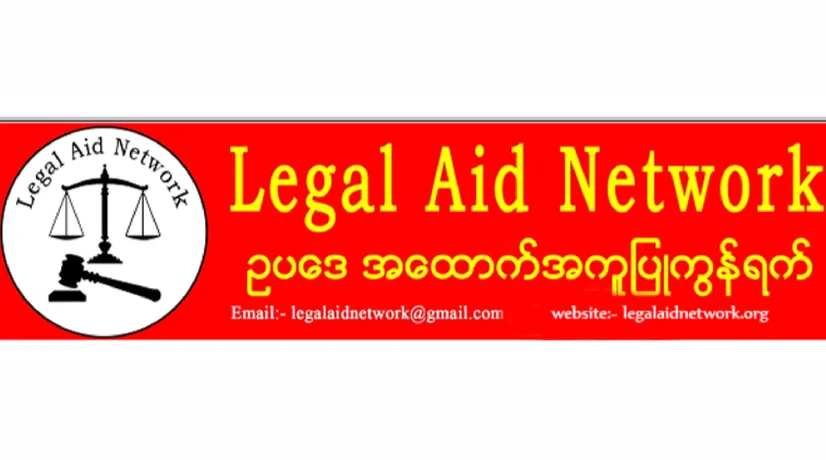The Failed Pathway to Amend the 2008 Constitution
12 March 2020

12 March 2020
The Union Assembly’s March 10 decision shows that Article 436 of the 2008 Constitution is an unsurmountable barrier to amending the said Constitution. The first step to amend the core provisions, which validify the military dictatorship, requires the prior approval of more than 75% of all Union Assembly representatives, known as the Pyidaungsu Hluttaw. In accordance with the Constitution, the Union Assembly is constituted by altogether 664 representatives. Nevertheless, due to unsecure local situations and other causes, elections might not be held in some constituencies. As such, it is rather difficult to fill the seats with all 664 representatives in every election.
In calculating more than 75% of the votes, the figure is not based on a total number of attendants at the meeting of the Union Assembly, but on the total number of all representatives listed in the assembly. In the Union Assembly, there are altogether 654 representatives in total during this term. To meet more than 75%, then, 490 supporting votes must be obtained. Complicating the ability to reach that number, out of the total 654 votes, 166 objection ballots statically fixed for the military appointees shall be deducted—leaving just 480 remaining votes. Hence, under any circumstance, 490 supporting votes cannot be obtained.
In the forthcoming 2020 elections, for security reasons, there may be an increased number of constituencies in which elections cannot be held. The more the number of such constituencies, the less opportunity to achieve more than 75% of the votes. In such a case, if the total number of all Union Assembly representatives is 644, only when 483 supporting votes are obtained will the supporting votes exceed the 75% threshold. If 166 is deducted from 644, only 478 will remain, and 483 votes cannot be obtained. It shows that only when objection votes are cast by the military appointees and these votes are deducted from the total number of representatives, the 75% threshold cannot be met.
In fact, deduction shall be done not only for the 166 ballots cast by the military appointees but also for the votes from other political parties—such as the Union Solidarity and Development Party (USDP) and the National Unity Party (NUP), formed by the ex-army personnel—and other small proxy parties of the Myanmar Army. For instance, ballots were counted in the Union Assembly on 10 March 2020. When 166 was deducted from 633 attendants, 467 remained. Unfortunately, the maximum supporting votes was just 415 even on the second day. When the total number of supporting votes was deducted from 467, it was found that 52 objection votes, at least, still existed. They might be from USDP, NUP, and other
proxy parties. Their similar support to the military appointees will persist whenever a motion to amend the Constitution is conducted in the Union Assembly in the future.
Thus, even if efforts to amend the core provisions of the Constitution are exerted for several decades more, those efforts will never be feasible.
On March 10 meeting, the terms, “the aged and the disabled,” were just changed; “the aged” became “the elder people,” and “the disabled” was changed into the same term in the English language but a bit different term in Myanmar language. Except for the above, no substantial Article could be amended at all in the meetings of the Union Assembly, held on 1011 March 2020. The process for amendment of the Constitution has therefore become a mockery. This is the negative result attributed to the failed attempt of the NLD which bowed down before the 2008 Constitution, claiming national reconciliation, taking for at least eight years. Now, it is time to stop.
In a democracy, democratic accountability exists. The National League for Democracy (NLD) led by Aung San Suu Kyi participated in the previous elections by making three election promises—to amend the 2008 Constitution, to uphold the Rule of Law, and to achieve internal peace. Unfortunately, none of the three has been achieved thus far. The Union Assembly’s March 10-11 decisions indicated their utmost effort to X, but that effort completely failed. As such, it is time now for MPs from the NLD to leave the legislative assemblies and for the Ministers to step down from their ministerial positions. Without doing so, if they persist in staying in superficial power by enjoying luxurious positions, the military dictatorship will be embedded. Rather, if they desire to undertake the interests of all ethnic nationalities, their States/Provinces and the entire Union, the MPs and Ministers should choose another alternative—one that can lead to the emergence of a new Federal Democratic Constitution.
Legal Aid Network (LAN)
For detail information, please contact:
Mr. Aung Htoo, Human Rights Lawyer and Founder of Legal Aid Network Head Office: Mai Ja Yang, Kachin State, Burma/Myanmar Website: legalaidnetwork.org E.mail:[email protected] Phone: (46) 76 1156 215
၎
င
၎
၎
၎
င
၎
၎
Announcements
28 February 2025
Asian NGO Network on National Human Rights Institutions , CSO Working Group on Independent National Human Rights Institution (Burma/Myanmar)
Open letter: Removal of the membership of the dis-accredited Myanmar National Human Rights Commission from the Southeast Asia National Human Rights Institution Forum

Progressive Voice is a participatory rights-based policy research and advocacy organization rooted in civil society, that maintains strong networks and relationships with grassroots organizations and community-based organizations throughout Myanmar. It acts as a bridge to the international community and international policymakers by amplifying voices from the ground, and advocating for a rights-based policy narrative.